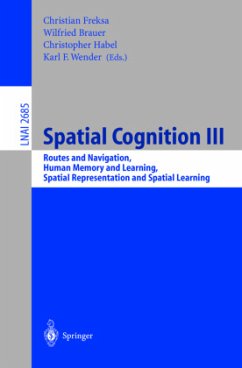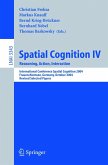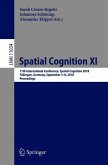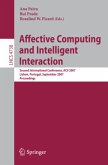Spatial cognition is an interdisciplinary research area involving artificial intelligence, cognitive psychology, computational linguistics, geography, mathematics, biology, theoretical computer science, architecture, design, and philosophy of mind. As these different disciplines gain a deeper understanding of their fellow disciplines and their research approaches, they increasingly find ways to combine their insights and to conceive powerful mechanisms to analyze and synthesize cognitive systems. Spatial cognition has now reached a point where we can see how different pieces of the puzzle may fit together to form integrated systems of specialized cognitive components. The research triggers new quests for basic issues of cognition and sparks ideas for the development of technological applications that make use of spatial structures and spatial computation. Potential applications can be found in such diverse areas as autonomous robotics, geographic information systems, locati- based services, spatial task assistance, multi-agent communication, to name but a few. This third volume on Spatial Cognition marks the final phase of the German Spatial Cognition Priority Program. It augments the results presented in the two precursor volumes published in 1998 and 2000, respectively. The interdisciplinary 1 research program was established by the Deutsche Forschungsgemeinschaft (DFG) in 1996 and terminated after six years, the maximum duration of DFG priority programs. The Spatial Cognition Priority Program consists of 17 research projects at 13 research institutions throughout Germany. Besides carrying out research in individual projects and joint research between projects, the program organized 'topical colloquia' and annual plenary colloquia, largely with internationalparticipation.








